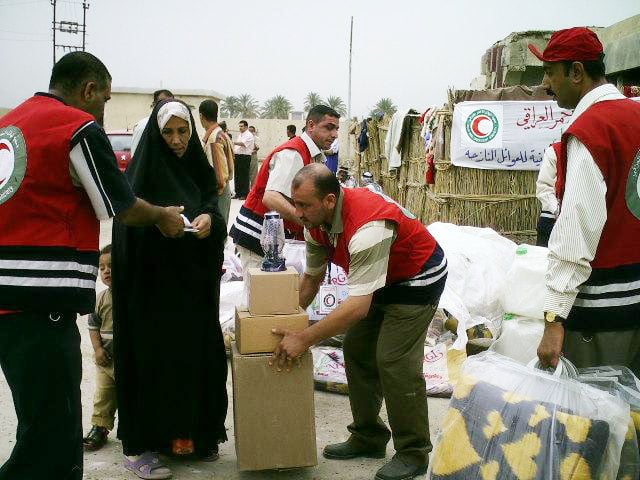“There is no doubt the current economic crisis… will affect Iraq’s income and living standards, especially those of the miserable displaced families,” Abdul-Khaliq Zankana told IRIN.
Zankana, who heads parliament’s Displacement and Migration Committee, recently called on the government to consider earmarking a fixed percentage of oil export revenues for IDPs - a proposal he now sees as unlikely to be implemented next year.
“The government still insists there should be no separate budget allocation for IDPs, in line with its philosophy that IDPs are a temporary phenomenon… However, we believe this issue will take years, not months, to be resolved,” Zankana said.
He said some 50 billion Iraqi dinars (about US$42.5 million) was supposed to be allocated in next year’s budget for emergencies and payments to needy groups such as IDPs. Zankana has been campaigning for 10 times this sum to be made available.
Last month the Iraqi government cut $13 billion from its draft budget in light of falling oil prices, and with oil prices down to around $50 a barrel - from a summer peak of $147 - the government may have to revise its budget for a third time, as the second draft was based on an assumed oil price of $62 a barrel.
Hashim Hassan, a media professor at Baghdad university, said the government should help IDPs get jobs and make public spending cuts to ease pressure on the budget.
Iraq has an estimated two million IDPs and a further two million people are living abroad as asylum-seekers or refugees.
Food rations
Currently the government is providing ad hoc assistance and monthly food rations to some IDPs. The rations are distributed through the Public Distribution System (PDS), though there have been many question marks over its effectiveness and fairness.
According to the September update from the IDP Working Group in Iraq, which includes the UN Refugee Agency (UNHCR), the International Organization for Migration (IOM), other UN Agencies and NGOs, there is a need for emergency food distributions to vulnerable IDPs and host communities unable to access PDS rations.
The update said there were a number of problems with the PDS: “Not all families have a PDS card, either due to delays in transferring rations cards or because they are not eligible to register where they have settled. Food rations are insufficient, incomplete and received irregularly for almost half of the caseloads.”
It also highlighted some of the problems facing IDPs: “In certain areas, humanitarian conditions are dire with a lack of access to food, adequate shelter, clean water and sanitation, health and employment, particularly affecting vulnerable groups such as women and children. In addition, rising costs of fuel, rent and food further strain IDPs’ and returnees’ limited resources.”
sm/at/cb
This article was produced by IRIN News while it was part of the United Nations Office for the Coordination of Humanitarian Affairs. Please send queries on copyright or liability to the UN. For more information: https://shop.un.org/rights-permissions



